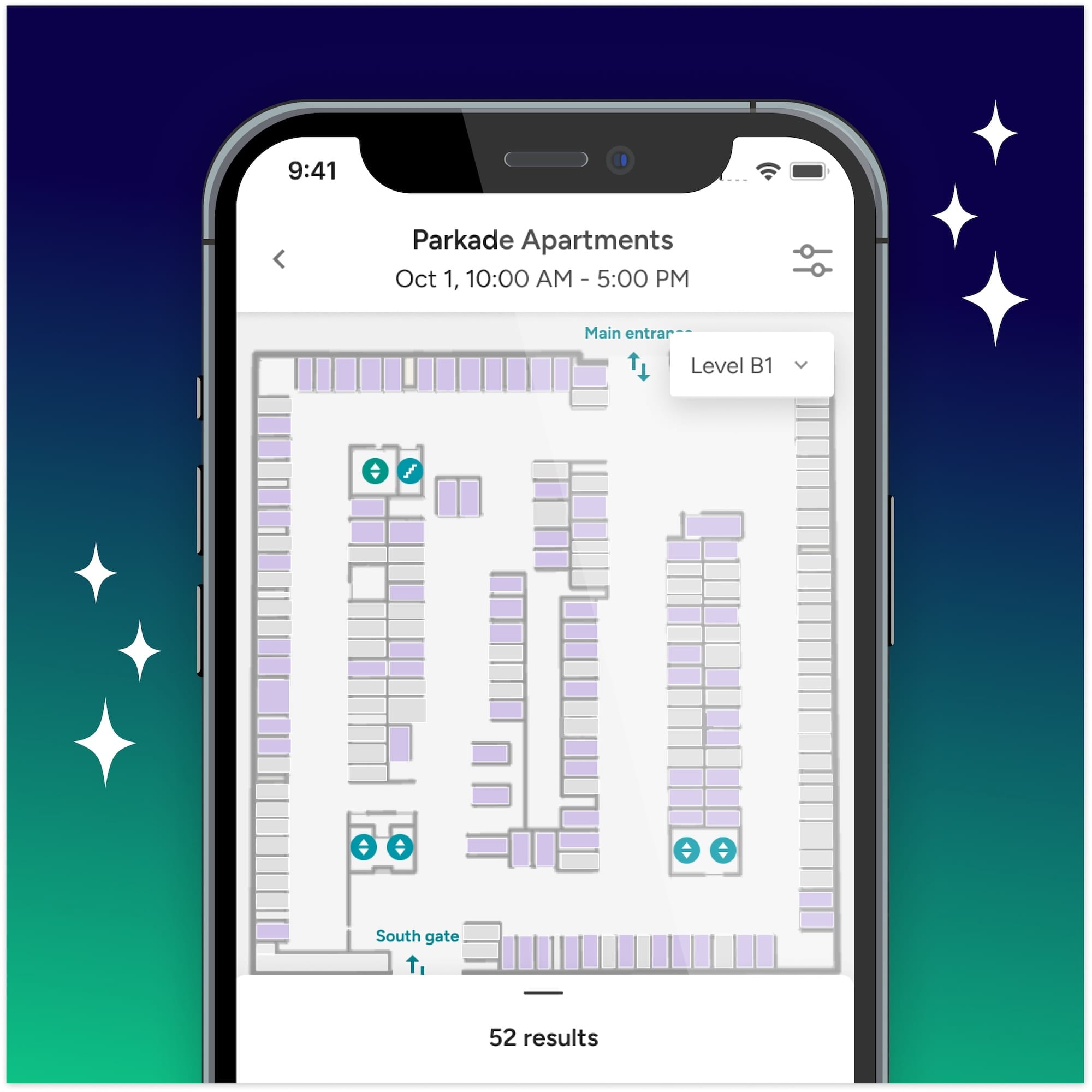

TABLE OF CONTENTS
Consider how important your name is. A name is an important part of any person’s identity. And it’s no different with an apartment complex name. The name you select for your multifamily property should not be a decision that you take lightly.
While a great name can’t be a bandaid for a badly managed property, it can be the cherry on top of an incredible resident experience.
There are hundreds of apartments that your pool of potential residents have to choose from. It’s in your best interest to identify all of the potential ways that you can stand out from the rest. A unique, well-picked name is one of the easiest ways to stick in peoples’ heads a little longer.
According to Forbes, a name is a valuable brand asset that:
Stacey Feeney, Founder & Creative Director at Zipcode Creative said of the value of a name:
“Well, your name is like your brand's signature — it gives a glimpse into who you are. A good name can grab attention, hold onto it, and even make people think.”

So given the importance of your apartment complex name, how are you supposed to know whether you’re picking the right one or not?
In these instances, it’s a good idea to look to the experts. So we talked to people in a variety of roles in the multifamily industry — from developers to property managers to branding experts — to pull back the curtain on their decision-making process when selecting an apartment complex name.
And what we found is that there’s no one right answer. Almost everyone takes a different approach. So we wanted to share a few below to spark some inspiration, before we share our tips to brainstorm and pick a name.
At one of Sherry’s properties, they took a collaborative approach. “We ran a company-wide contest to pick a name,” she told us. “Whatever employee came up with the best name, won a prize.”
Developers prefer to take an in-depth, research-focused approach to selecting an apartment complex name. One developer told us, “As urban infill developers, we start by researching the history of the neighborhood. Building names, as well as amenities and decor decisions, pay homage to prior uses on the same site. We design and build to endure the test of time, but we also recognize that our work is a moment on the continuum of history — past, present, and future.”

Some management companies lean into certain themes that they’re passionate about and that potential residents may have a shared passion for. For example, Anamaria told us, “my boss loves soccer, so all of our properties have soccer names.”
There’s no better person to hear from about tried-and-true tactics to select an outstanding (and lucrative) apartment complex name than someone who specializes in apartment branding. When we asked Stacey how they help their clients come up with the perfect name, she wrote to us:
"When we brainstorm names, here's what we're considering:
By taking all of these factors into account, we'll find a name that not only resonates with potential residents but also pleases the SEO gods. We'll test out different sizes, lengths, and formats until we land on something truly special, with the future logo in mind, of course."

Before we get into some specific strategies to come up with a great name, here are some quick best practices for you to lean on.
Most apartment names are between 1-3 words. This makes the names snappy and easy to remember.
One reddit user mentioned that, “the trend in my area is to use single names like Blue, Lime, Elan, and Flux, to name a few.”
Words that feel more active and spur images of movement or energy tend to perform well.
For example, two of our customers have properties with the name “Pinnacle.” The strong, active, and larger than life imagery associated with this word gets potential residents excited.
Some other great examples from our list of customers are Electra and POP.
One popular tactic is to use some unique spelling to make the name stick in peoples’ minds. For example, we have a customer who uses the name “Sentral” instead of Central. The word still sounds familiar, but the spelling makes a more lasting impression (plus, it can make finding an available domain name easier!)
Be careful, though, not to make it too wacky so that people don’t have a hard time remembering the spelling.
There is a whole thread on Reddit about the pretentious ways that management spells their apartment complex names. Spelling like “pointe” or other “french-sounding” names, meant to give the property a sense of grandness, can often backfire as people perceive it as cringe, for lack of a better word.
Now that you’ve got some inspiration from some other multifamily pros and know the base-level best practices, let’s dive into some practical strategies you can use to land on the right name for your apartment complex.
Market research is critical in any situation where you’re selling to other people, and picking a name to draw new residents in is no exception.
This starts by explicitly selecting your target market. This could be based on demographic information — i.e. age, occupation, income level — or psychographic information like interests, values, and hobbies. Ideally, you’ll take both into account. Having clarity on the exact groups of residents you want to flock to your community will help you pick the perfect name that grabs their attention.
For example, the right name for a college apartment complex, a suburban complex, an urban complex for young professionals, and a retirement community will vary greatly.
64% of consumers develop brand loyalty because of shared values. Your brand values can boost your relatability and foster stronger connections. Consider how you can incorporate these shares values — whether that’s interests, causes, sense of humor, etc. — into your name so that you can speak directly to them.
And this doesn’t have to (and probably shouldn’t) be based on guesswork alone. Feel free to get out and interview people in these communities, send out surveys, and even test your name ideas in a focus group.
One great example of market research clearly at play is ZEN Hollywood. They mention on their website “ZEN Hollywood is perfect for those who enjoy spending time outside living a healthy, active lifestyle, as well as for those who appreciate a home that's a retreat from the business of everyday life.” They are clearly targeting the health-conscious, peace-loving community in LA, so the word “Zen” immediately resonates.
Based on your market research, you’ll want to create a brand persona that will resonate with your audience.
In other words, you want to describe your brand as if it’s a person. What does this person care about, do, say, and how do they say it? Are they casual, professional, wacky, or cool?
Your brand persona can further inform your apartment complex name. When you have some ideas in mind just think to yourself, “would the person who represents our brand say this?”
If you have any unique features or unique amenities, you may want to highlight them in your name.
For example, an apartment complex in Los Angeles has a unique, curved shape, so they named their building Kurve on Wilshire. (Notice they used the unique spelling tip from above, too!)
Another apartment complex in Denver, Colorado called Skyline at Highland highlights the incredible views that their residents get in their name.
Whether it’s a design feature, the best views, proximity to city centers, or best-in-class amenities, these are all great places to draw inspiration from.
Many developers love to incorporate some key cultural or geographic nods into their apartment complex name. Often, these aspects bring a sense of pride to your target audience.
For example, references to peaches or using the word Peachtree is extremely common in the greater Atlanta area, due to Atlanta’s history. Of course, you still have to find a way to incorporate a unique flare to help you stick out from all of the other complexes that are using the same strategy.
You can also make a nod to any local geography or landmarks, like nearby mountains, parks, or monuments.
When one user took to the r/RealEstate Reddit thread for some help naming their apartment complex, someone replied:
“It seems like most buildings are named after a nearby park, canyon, lake, river, landmark, monument/historical event. If there is nothing local or significant that is not taken then try a generic local landform: dune, bluff, cliff, mesa, hill, terrace, valley, ridge, summit, shore, ravine, etc.
They gave some generic examples to spark some inspiration: Terrace View, Ridgeview, Summit View, Mesa Ridge, Coastline, River Walk, Green Plains, Valley Center, etc.”
Although you may have a single person or department in charge of making the ultimate decision, it’s often a good idea to get a variety of people involved in the brainstorming process.
When you give people from all levels of marketing, design, development, and management involved, you’re introducing a variety of perspectives into the mix, which could help you find that perfect apartment complex name.
Similar to Sherry, the business manager we mentioned above, you could also make it a contest, which can incentivize people to really give it their all and build team morale.
And finally, when you have a list of great names that you’re deciding between, make sure you check all of the “boring” but important boxes.
First and foremost, make sure that the domain is available. The sooner you can do a quick check on a site like Godaddy.com during the brainstorming process, the better. You don’t want to invest tons of time getting excited about a name only to find out there’s no concise domain name available.
You also may want to verify that the name you select isn’t copyrighted. Once you have a few ideas in mind, plug them into the search on the US Patent Office’s directory to see if it’s still available.
A trademarked name doesn’t automatically disqualify it, though. Consider the following scenarios:
An apartment complex name is a valuable marketing tactic that can help you grab peoples’ attention and get new residents in the door. But it should really just be the icing on the cake.
As you’re just opening — or reopening — a building, you want to consider all of the factors that will contribute to a positive resident experience in the long term.
Wanna know what these factors our? Check out our research-backed blog post about what residents really care about to make sure you’re making investments where it counts.
.jpg)
As parking management becomes increasingly digital, security becomes critical — and we’re excited to share that we've achieved a major security milestone.
Read Story
We’re thrilled to announce one of our most significant leaps forward this year: the launch of dynamic maps across our mobile and web applications.
Read Story
Now that AB 1317 is official, it’s time to brush up on the requirements and see how your properties stand to benefit.
Read Story